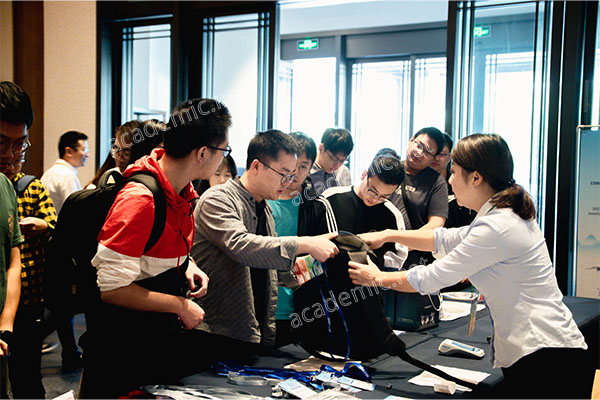Top International Conferences in Computer Science
For researchers and professionals in the field of computer science, presenting at top international conferences is a prestigious opportunity that provides global exposure, rigorous peer review, and networking opportunities. This guide highlights some of the most renowned international conferences in computer science and offers tips on how to submit your research successfully.
Why Present at Top International Conferences?

- Global Recognition: Gain visibility and recognition from the international academic and professional community.
- Quality Feedback: Receive valuable feedback from experts and peers in your field.
- Networking: Connect with leading researchers, industry professionals, and potential collaborators.
- Career Advancement: Enhance your CV and increase your chances for academic and professional opportunities.
Here are some of the most prestigious international conferences in the field of computer science:
1. ACM SIGCOMM
ACM SIGCOMM focuses on the field of data communication and networking. It is one of the flagship conferences organized by the ACM Special Interest Group on Data Communication.
- Topics: Network architecture, protocols, communication strategies, network security.
- Website: ACM SIGCOMM
IEEE Conference on Computer Vision and Pattern Recognition (CVPR) is one of the most significant conferences in the field of computer vision and pattern recognition.
- Topics: Image processing, computer vision, machine learning, pattern recognition.
- Website: IEEE CVPR
Conference on Neural Information Processing Systems (NeurIPS) is a leading conference in the fields of machine learning and computational neuroscience.
- Topics: Artificial intelligence, neural computation, deep learning, cognitive science.
- Website: NeurIPS
ACM Conference on Human Factors in Computing Systems (CHI) is a premier international conference on human-computer interaction.
- Topics: User experience, human-computer interaction, usability studies, user interface design.
- Website: ACM CHI
International Conference on Machine Learning (ICML) is a leading conference on machine learning research.
- Topics: Machine learning algorithms, statistical learning, data mining, artificial intelligence.
- Website: ICML
ACM SIGGRAPH is the premier conference on computer graphics and interactive techniques.
- Topics: Computer graphics, visualization, virtual reality, interactive systems.
- Website: ACM SIGGRAPH
IEEE/ACM International Conference on Software Engineering (ICSE) is a top conference in the field of software engineering.
- Topics: Software development, engineering methodologies, software testing, software maintenance.
- Website: IEEE ICSE
1. Choose the Right Conference
Selecting the appropriate conference is crucial for maximizing the impact of your research. Here’s how to find the right conference:
- Academic.net: Visit Academic.net for a comprehensive list of upcoming international conferences in computer science and other academic fields.
- Professional Networks: Seek recommendations from colleagues, mentors, and professional associations.
Each conference has specific submission guidelines. Make sure to:
- Read the Call for Papers (CFP): Carefully read the CFP to understand the conference's focus areas and submission requirements.
- Follow the Format: Use the conference's templates for LaTeX or Microsoft Word to format your paper correctly.
- Adhere to Deadlines: Note the deadlines for paper submission, notification of acceptance, and final paper submission.
A well-prepared paper increases your chances of acceptance. Here's how to craft a compelling submission:
- Title and Abstract: Write a clear and informative title and abstract that highlight the significance of your research.
- Introduction: Provide a concise introduction that outlines the research problem, objectives, and contributions.
- Methodology: Detail your research methods to ensure reproducibility.
- Results and Discussion: Present your findings clearly and discuss their implications.
- Conclusion: Summarize the key points and suggest future research directions.
- References: Use the appropriate citation style and ensure all references are accurate and relevant.
Before submitting, use plagiarism detection tools such as Turnitin or iThenticate to ensure your work is original and properly cited.
5. Submit Your Paper
Submission is typically done through the conference’s online submission system. Ensure you:
- Register on the Submission Portal: Create an account on the conference’s submission portal.
- Upload Your Paper: Follow the instructions to upload your paper and any supplementary materials.
- Confirm Submission: Double-check your submission for completeness and accuracy, then confirm submission.
After submission, your paper will undergo a peer review process. Be prepared to:
- Respond to Reviewer Comments: Address any feedback or required revisions promptly and thoroughly.
- Revise and Resubmit: If necessary, revise your paper according to the reviewers’ suggestions and resubmit it by the given deadline.
If your paper is accepted, prepare to present your work:
- Create Presentation Materials: Develop slides or other materials that effectively communicate your research.
- Practice Your Presentation: Rehearse your presentation multiple times to ensure clarity and timing.
- Engage with Attendees: Use the conference as an opportunity to network with other researchers and professionals in your field.
For more detailed information on top international conferences in computer science, submission guidelines, and important deadlines, visit Academic.net. Academic.net offers a comprehensive database of academic conferences, helping researchers and professionals find suitable events and stay updated on important submission requirements.
